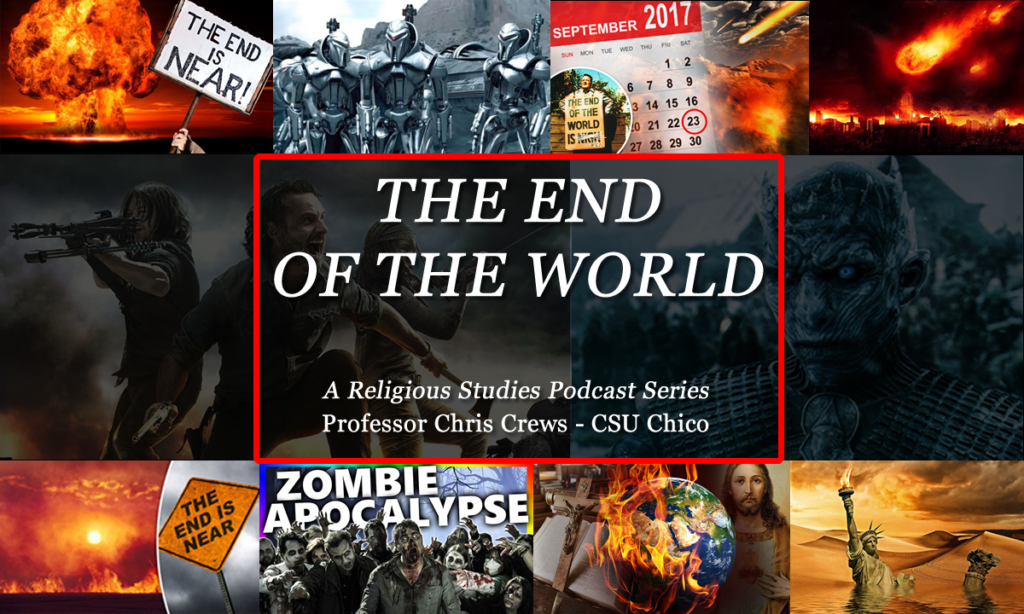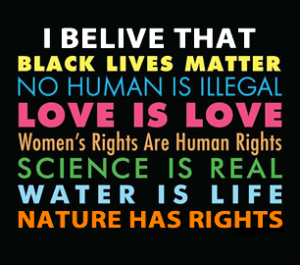Noah – The First Environmentalist
[Spoiler Alert**] While watching the new Noah movie by Darren Aronofsky, I couldn’t help but notice some strong eco-animist undertones, which struck me as quite odd given the centrality of this story for a monotheistic tradition that historically defined itself in opposition to the many animist and polytheistic peoples of the world. If you’ve been paying attention to current pop culture religious debates, you’re likely aware of the conflicting views on Noah and the Ark, mostly coming from right-wing Christian fundamentalists, perhaps best captured by Ken Ham of Answers in Genesis. Following his participation with Bill Nye in a recent creation debate, public interest in Ham jumped, which apparently has generated significant new capital for his stumbling Ark Encounters project that aims to create a life-size replica of Noah’s Ark in Kentucky. So why does a movie reenacting the story of Noah, the last Patriarch in the line of Adam, feel like a quasi-animistic film about care and respect for nature and the necessity of saving the Earth from human wickedness? The answer, I want to suggest, is that the film reflects a growing strain of popular culture that is increasingly embracing ideas of oneness with nature, earth stewardship, and somewhat more slowly, critiques of industrial civilization’s appetite for destruction.
The first and clearest example of this comes in the opening minutes of the movie, when we learn about the line of Cain and their relationship to the Watchers. We are told that the Watchers — fallen angels who attempted to help Adam — taught the line of Cain how to use technology, and in turn the line of Cain developed a vast industrial civilization that spread across the planet like a plague, destroying everything in its wake. In time, man’s greed and appetite destroyed the Creator’s works, with the humans turning on the Watchers and slaughtering most of them as well. We eventually see the result of this fall of mankind: a barren landscape stripped of life and devoid of water. This is the landscape that Noah and his family first encounter in their journey to find Noah’s grandfather Methuselah.
The second example of these ecological themes is the lifestyle that Noah and his family are shown living. These are quasi-nomadic people who wander and live off the land, collecting plants and other vegetables to eat. They live in minimal structures made of natural materials and wear simple hand-made clothes. Early in the film, Noah and sons gather plants from among the rocks, with Noah reminding Ham to only take what they need and can use— an array of useful items that does not include the pretty white flower Ham has picked. Noah explains to Ham the basic life cycle of seed germination, flower growth and maturation, seed dispersal and new plant growth, and how Ham’s covetous act has destroyed that cycle of life. As if to say thank you for the ecological care and ethics lesson provided to Ham, the Creator sends a raindrop which instantly sprouts a replacement flower (and draws a surprised look from Noah). This is about as close as one can get to hands-on ecological education and the cultivation of an environmental ethic amongst the youth. Guardian movie critic Jenny Diski even went so far as to describe Noah as “a chunky eco-warrior battling to save the world.”
A third environmental example is more of an overarching theme, rather than a singular moment, and has to do with the critique of humans and their treatment of the Earth ever since the line of Cain began. In essence, we learn that everything started going bad when Adam and Eve were cast out of the Garden of Eden and Cain slew Abel, and it’s all been downhill since then. Basically the Creation was good until man came along, and then the whole thing went off the rails. And as Noah suggests several times, the Creation can never be pure and good again as long as man is in the picture, a belief which nearly leads him to a psychotic break followed by multiple acts of attempted filicide. So where does this underlying environmental critique come from?
Back in 2008, Peter Sciretta at Slash Film interviewed Darren Aronofsky about his idea for a new film, tentatively called Noah’s Ark, and here’s what Aronofsky had to say about his vision for the film:
“It’s a really cool project and I think it’s really timely because it’s about environmental apocalypse which is the biggest theme, for me, right now for what’s going on on this planet. So I think it’s got these big, big themes that connect with us. Noah was the first environmentalist. He’s a really interesting character.”
That helps explain Noah’s deep ecologist leanings in this film. Of course, this depiction of Noah did not go unnoticed by self-proclaimed religious defenders of Biblical inerrancy. As conservative Christian screenwriter Brian Godawa noted in his criticism of an early script of the film, Noah is depicted as “a kind of rural shaman, and vegan hippy-like gatherer of herbs. Noah explains that his family “studies the world,” “healing it as best we can,” like a kind of environmentalist scientist.” This is not the first time Godawa has criticized ecological themes in popular movies. In 2010 he penned an article in Christian Research Journal where he described James Cameron’s 2009 film Avatar as “a postmodern multicultural critique of America and Western civilization, where the good guys are primitive natives who worship nature, and the bad guys are greedy multinational energy corporations protected by warmongering mercenary militia, facilitated by the scientific depersonalization of nature.” It’s no surprise that Godawa was not a fan of this telling of Noah’s story either, since any connection between religion and ecology seems to be strictly taboo for the ultra-conservative Christian fundamentalists who preach a Gospel of Wealth and adhere literally to belief in the Biblical Dominion Mandate of Genesis. It’s also why groups like Answers in Genesis and the Cornwall Alliance have come out strongly against this movie, with the Cornwall Alliance claiming it “changes a story of love and redemption into an environmentalist propaganda piece about humans destroying the earth, and a call for human extinction,” while the Answers in Genesis’ review describes the film as “filled with blasphemous representations of God and character assassinations of Noah.”
Yet it is precisely this logic of human dominion, which groups like the Cornwall Alliance advocate, that Aronofsky takes to task quite brutally. Towards the end of the film we find Ham and Tubal-Cain plotting against Noah, and in order to regain his strength, Tubal-Cain grabs a lizard and bites its head off, much to Ham’s horror. Ham protests that those creatures are precious and must be protected. This provides Tubal-Cain a platform where he presents a clear articulation of the Dominion Mandate to Ham, elucidating the true ugliness of human nature and anthropocentrism — the world exists to serve man, and he should use it as he pleases, with no care for anything but himself. Tubal-Cain epitomizes the logic driving global industrial capitalism and causing the rampant destruction of life on Earth. Noah reminds us that this is the reason why the Creator chose to destroy everything. It is precisely Tubal-Cain’s temptation of Ham, and Ham’s desire for revenge, which leads Ham to take the offering of forbidden meat from Tubal-Cain, setting in motion the climactic final struggle.
So while most people are debating the Biblical authenticity of Noah, I would argue that there is a much more interesting story going on here. It is a story of the power to heal the world contained in a snakeskin passed down from Adam to Noah. This is a story where the Creator speaks to us through nature–in the form of wind and rain and miracles, but remains silent to humans deafened by the sounds of industrial civilization. In a time of catastrophic ecological destruction and rampant human wickedness, surely this is a religious message we all need to hear, regardless of our personal faith, or perhaps because of it.
The film carries a message against ecological destruction, at a time when defenders of the Dominion Mandate and their ilk would have their adherents direct their ire instead against environmentalists and against ecological messages. Unable to successfully vilify the messenger, in this case Noah, they would have us vilify those who villify villainy. It’s time to reclaim the creation care message of the first environmentalist and reconnect with our roots before it’s too late. While some Christians may believe the biblical rainbow covenant precludes their suffering from another flood, global climate change and rising sea levels suggest quite a different story for many.
Until next time…what do you care for?
Special thanks to Chris Evans for editorial suggestions on an earlier draft of this post.
###




